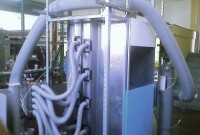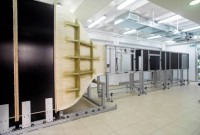Combustion, Pyrolysis and Gasification Laboratory
The Combustion, Pyrolysis and Gasification Laboratory (CPG Lab) conducts investigations leading to the development of methods and processes for extracting energy and fuels from renewable sources. Higher efficiency ways of utilizing organic waste and conventional low-grade fossil fuels are also...





